Grinnell College athletic teams have competed under the banner of “The Pioneers” for more than a century, but it could just as easily have been the “Grinnell Trojans.”
The Pioneers nickname, which is not accompanied by a mascot, is used by the athletic teams and also appears in the name of the “Pioneer Bookshop” and “Pioneer Weekend.” But following a nationwide reckoning on race and a petition to change the name created by John Aerni-Flessner ’01, the use of “Pioneer” in College branding is drawing increased attention.
According to documents found by Associate Professor Christopher Jones, archivist of the College, “The Pioneers” first appeared about a century ago.
In an article dated Oct. 29, 1919, The S&B reported that “The Pioneers” was chosen following a two-day contest held to pick a name for Grinnell’s athletic teams. The Honor G club chose from a list of 150 suggestions submitted by students; the winning name was put forward by Sol Gilberg ’1920. Other notable suggestions were the “Trojans,” “Cardinals,” “Bear Cats” and “Cubs.”
Before 1919, according to Jones, college teams simply played under the Iowa College and then the Grinnell College name without a separate nickname. Even after the nickname was chosen, images representing the College varied.
“My sense is that, while we’ve always been the Pioneers, there really is not a strong or robust visual history of the mascot,” said Jones. “We usually see that Honor G, which is kind of a variation of the iron cross.”
Referencing the similarity between Grinnell’s Honor G and the iron cross, a recognized Nazi symbol, four respondents to Aerni-Flessner’s petition asked the administration to consider the resemblance between the Honor G and Nazi Iron Cross in addition to the nickname.
The “Pioneers” name was chosen nearly 27 years after the first appearance of the Honor G, which is still in use today. Imagery related to the nickname has come and gone as succeeding generations of community members have interpreted it in different ways.
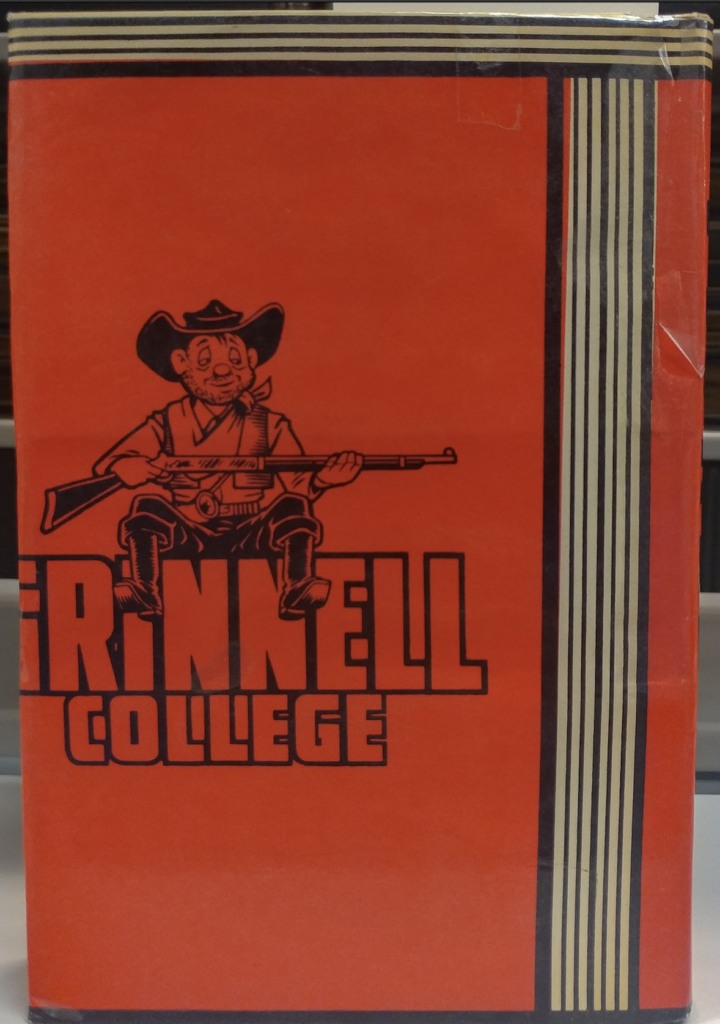
It is difficult to discern the mindset of the creators of the “Pioneer” nickname, but according to the 1919 article, it was “chosen because of its significance in connection with the history of the college.” The article describes this connection in terms of the first sporting events “to be staged on Iowa soil” and in terms of the “Iowa Band who were the pioneers in the middle western education.” The writer does not directly connect the name to the history of expansion onto land occupied by Indigenous people, though that connection is hard to miss from a modern perspective.
“My read on that article is that they were first and foremost using the pioneer in the sense of, as you suggested, the first football game and the first to do with a variety of things,” said Jones. “And the image of people, mostly white, moving across the county in a generally westwardly direction came almost secondarily.”
Even if the connection with violent westward expansion wasn’t considered by the nickname’s creators, it became explicit during the next 50 years as images depicting the “Pioneer” were created.
Former President of the College George Drake ’56 wrote in an email to The S&B that he remembers a decal of the pioneer logo affixed to his study lamp in the 1950s. The cover of a 1960s college textbook depicts a cartoon “Pioneer” wearing boots, a vest and a hat and carrying a gun and powder horn. A 1966 picture of Grinnell’s football team shows a “Pioneer” mascot wearing an animal skin hat, carrying two powder horns and holding up a rifle.
Pioneer imagery had largely disappeared from campus by the 1970s, according to Professor Wayne Moyer, political science, but the name remains. Perhaps, if the name is changed, future archivists will look back on 2020 as another year of change.
“I suppose I would hope that [future historians] would look at the discussion surrounding the mascot in its context of what’s going on right now, really around the world, and remember that it can be uncomfortable but is a necessary part of understanding history,” said Jones


















































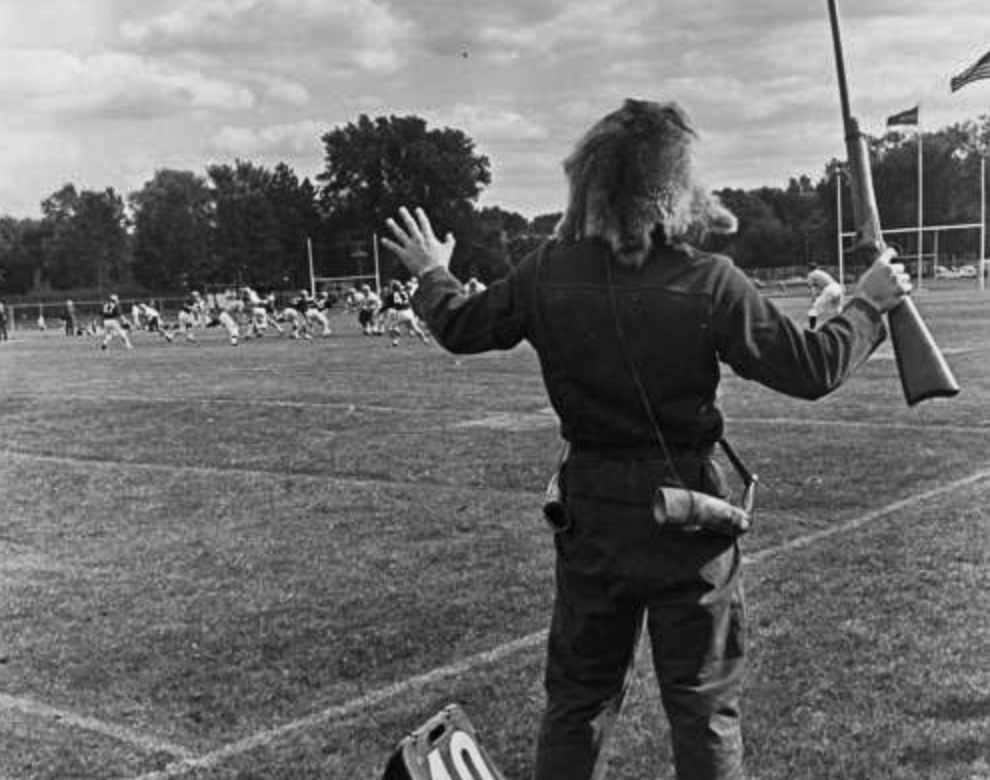

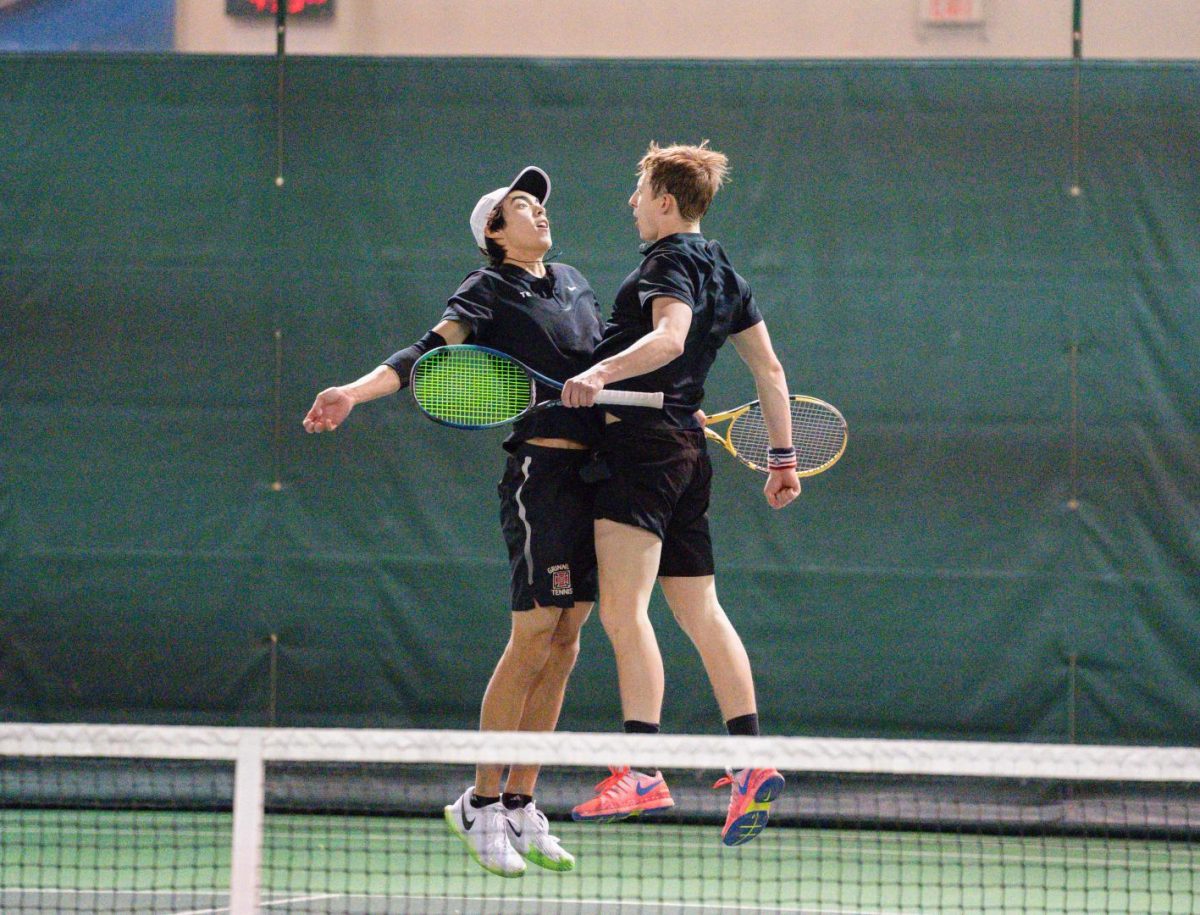

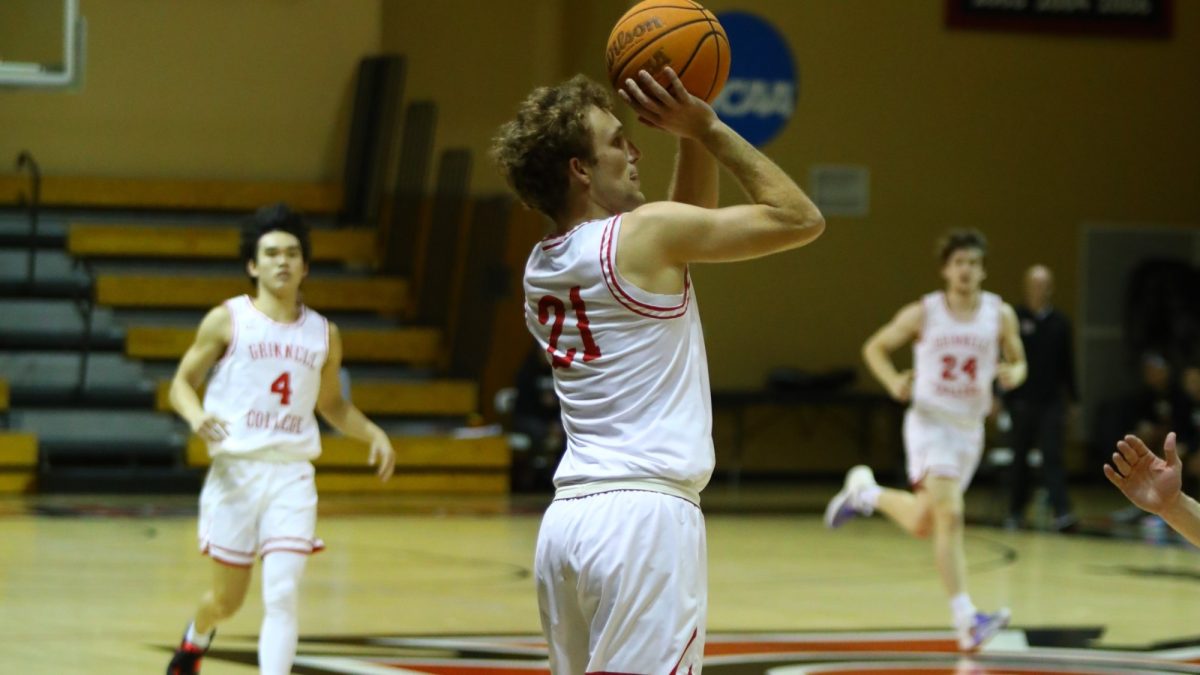
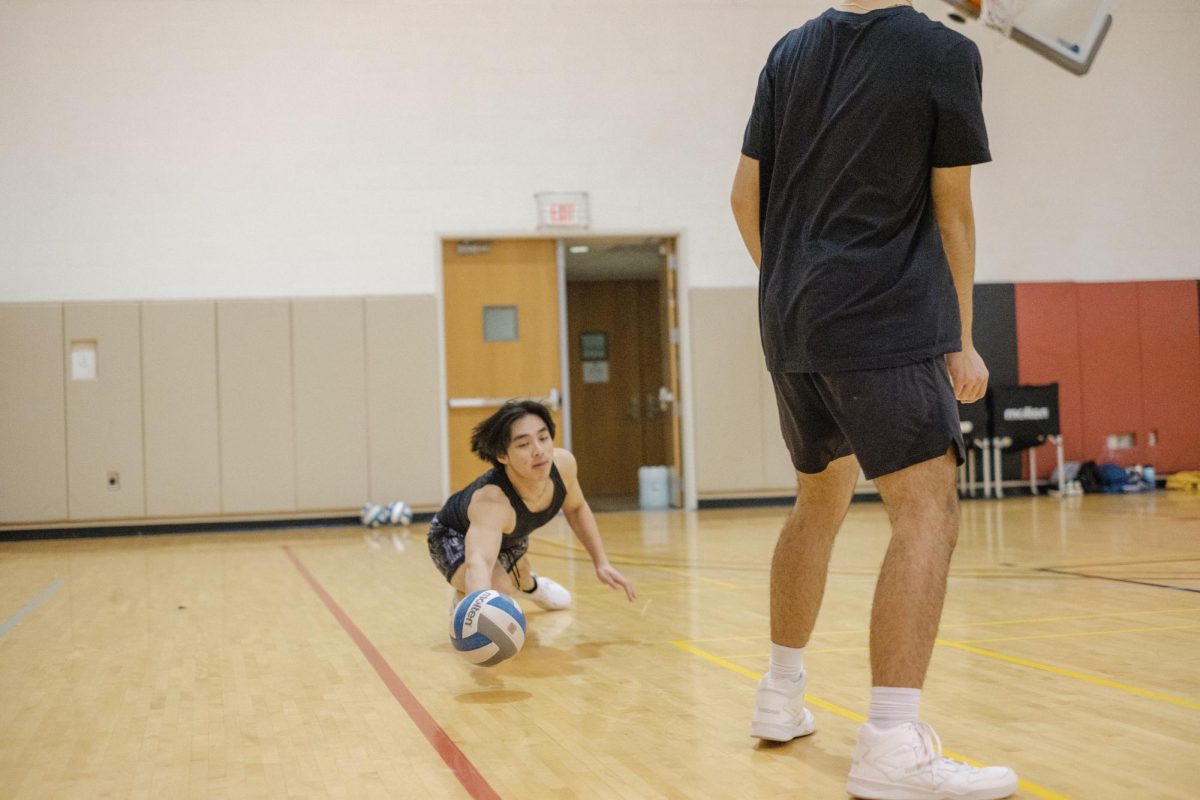
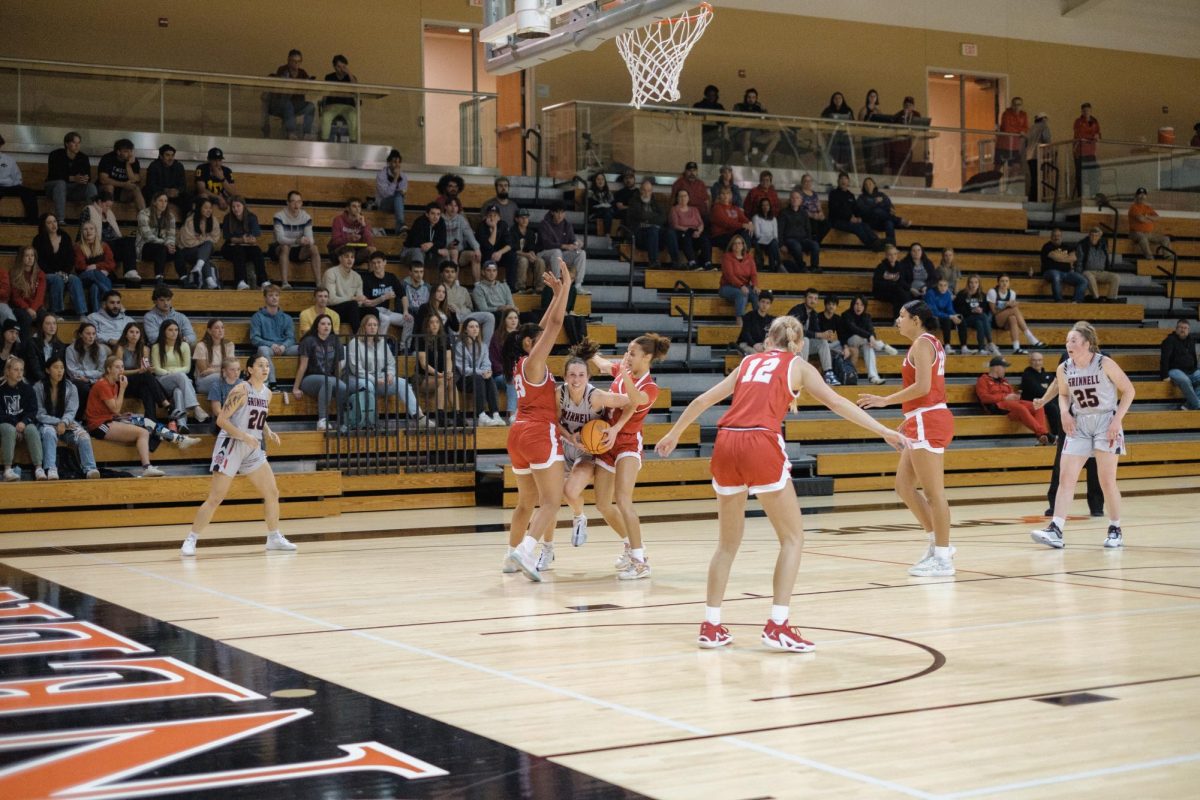
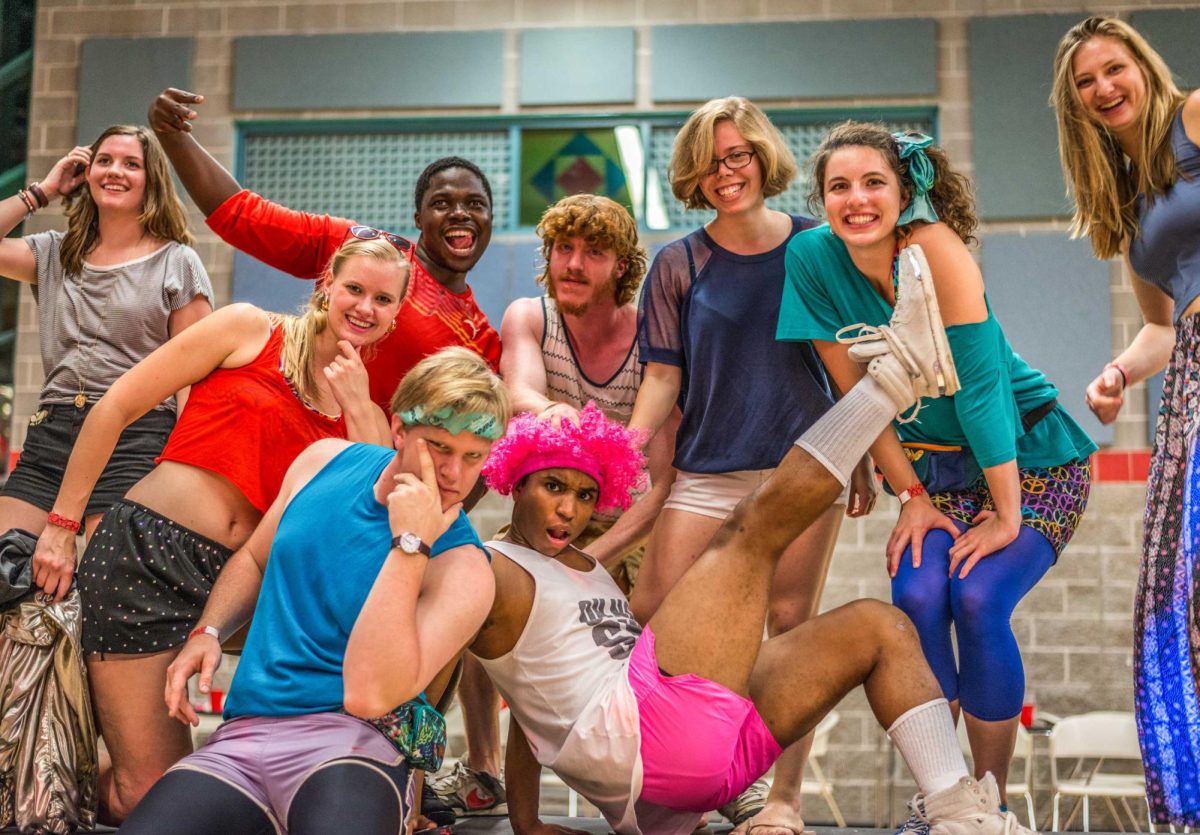
Robert Quashie '86 • Oct 14, 2020 at 8:27 pm
Seems the current petition is in the same spirit as the 2-day contest in 1919. My submission for consideration is, “The Experience.”
william crosby • Oct 14, 2020 at 10:45 am
I have heard a few students over the past decade say that they want the mascot to be “bisons.”